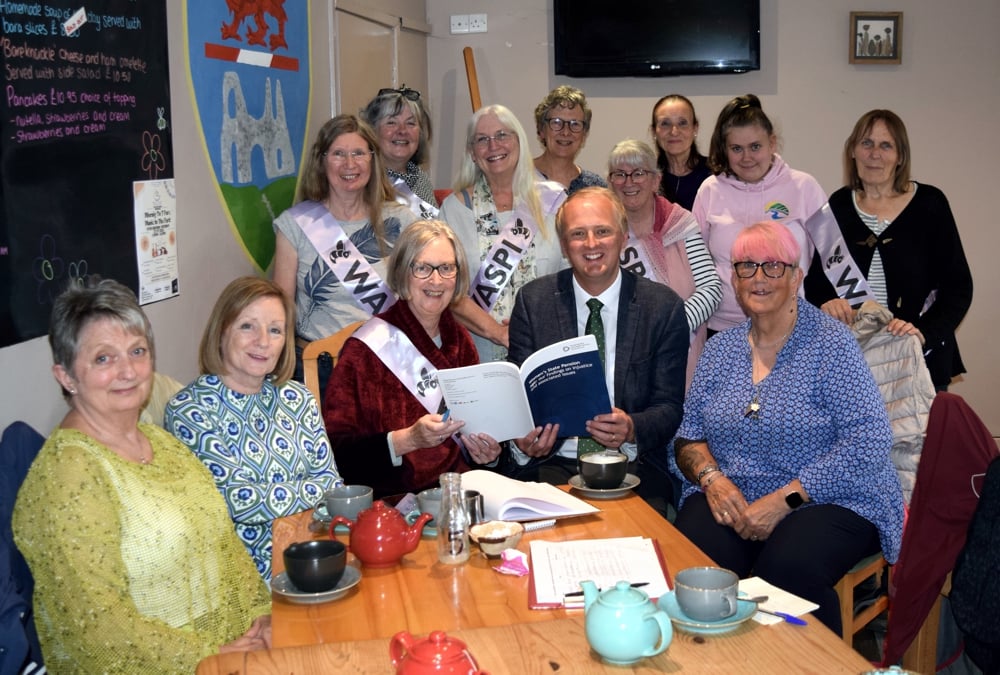Politics
UK Government Revisits Compensation for 1950s Women

The UK Government has announced a significant policy shift regarding compensation for women born in the 1950s, who have long campaigned for redress following changes to their state pension age. In a statement to the House of Commons, Pat McFadden, Secretary of State for Work and Pensions, confirmed that the Government will review its previous decision to deny compensation, which was recommended by the Ombudsman.
McFadden indicated that new evidence has emerged, which was unavailable to former Pensions Minister Liz Kendall when she refused compensation in December 2024. This evidence includes research commissioned by the Department for Work and Pensions in 2007, which contradicts previous claims regarding the communication of pension age changes to affected women.
Campaigners React to Government’s Decision
Local campaigners, including Pamela Judge, Co-ordinator of the Ceredigion Preseli Women Against State Pension Injustice, expressed cautious optimism about the announcement. Judge noted, “This is a welcome U-turn from the Government, although the evidence in question is certainly not new.” She highlighted that the 2007 research indicates that women from the 1950s would likely have read and comprehended personalized letters concerning their state pension age, countering the Government’s earlier rationale.
The potential repercussions of this decision are significant, especially as a Judicial Review is scheduled at the High Court for December 9 and 10, 2024. Judge emphasized that the Government’s acknowledgment of the inadequacies in its prior stance suggests that its earlier decision is now viewed as legally indefensible.
Local Member of Parliament Ben Lake also welcomed the Government’s change of approach. He stated, “I welcome the fact that the UK Government will ‘rethink’ its decision to reject compensation for 1950s born women hit by changes to the state pension. Thousands of women have suffered immeasurable harm because of this injustice.”
Lake further pointed out that while the review offers hope, there are still no firm commitments of compensation from the Government. “After years of disappointment, these women deserve certainty,” he added.
Looking Ahead
The Government’s decision to reassess its stance comes after years of campaigning by various groups advocating for the rights of WASPI women. The 1950s women affected by the pension age changes argue that they were not adequately informed about the adjustments, which have had severe financial consequences for many.
As the December dates for the Judicial Review approach, the Government’s next steps will be closely scrutinized. Campaigners and affected women alike await clarity on what this review might mean for their long-standing demands for compensation.
-

 Entertainment3 months ago
Entertainment3 months agoAnn Ming Reflects on ITV’s ‘I Fought the Law’ Drama
-

 Entertainment4 months ago
Entertainment4 months agoKate Garraway Sells £2 Million Home Amid Financial Struggles
-

 Health2 months ago
Health2 months agoKatie Price Faces New Health Concerns After Cancer Symptoms Resurface
-

 Entertainment2 months ago
Entertainment2 months agoCoronation Street’s Carl Webster Faces Trouble with New Affairs
-

 Entertainment2 months ago
Entertainment2 months agoWhere is Tinder Swindler Simon Leviev? Latest Updates Revealed
-

 Entertainment4 months ago
Entertainment4 months agoKim Cattrall Posts Cryptic Message After HBO’s Sequel Cancellation
-

 Science4 weeks ago
Science4 weeks agoBrian Cox Addresses Claims of Alien Probe in 3I/ATLAS Discovery
-

 Entertainment4 months ago
Entertainment4 months agoMarkiplier Addresses AI Controversy During Livestream Response
-

 Entertainment2 months ago
Entertainment2 months agoOlivia Attwood Opens Up About Fallout with Former Best Friend
-

 Entertainment3 months ago
Entertainment3 months agoMasterChef Faces Turmoil as Tom Kerridge Withdraws from Hosting Role
-

 Entertainment4 months ago
Entertainment4 months agoSpeculation Surrounds Home and Away as Cast Departures Mount
-

 World2 months ago
World2 months agoCole Palmer’s Mysterious Message to Kobbie Mainoo Sparks Speculation





















